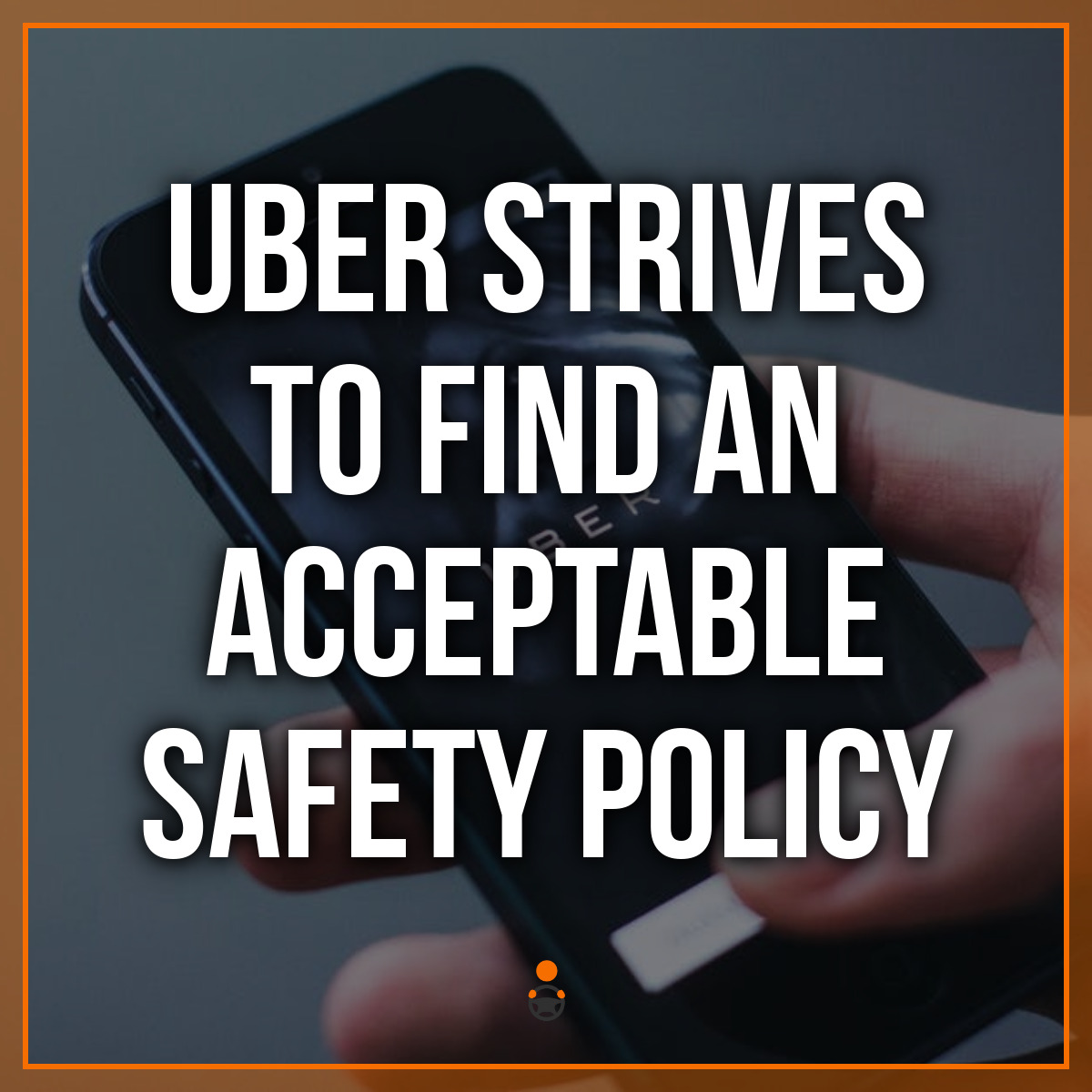It was a busy week for Uber, and to a lesser degree, Lyft. Some of the biggest news stories this week involved safety, from new recording rules to London’s ban on Uber. Senior RSG contributor John Ince breaks it all down for us below.

Uber’s latest attempt to address safety concerns: letting riders and drivers record rides [CNN]
Sum and Substance: As Uber faces continued pressure over safety issues, the ride-hailing company is set to test a controversial new safety feature that will allow riders and drivers to record audio during a trip within its app.
The measure is aimed to help with the reporting of safety incidents.
Safety is an ongoing struggle for the company, with incidents that range from fatal robberies of drivers in Latin America, where the company accepts cash payments, to reports of sexual assault and rape by drivers in the United States. With the new feature, Uber will, in effect, be putting riders in the position of choosing between privacy and security for a company that has a spotty track record with both.
The company announced the audio feature at an event in São Paulo on November 6, which was first reported on by Reuters. The Washington Post reported Wednesday that the feature will come to the US “soon” but the exact timeline is unclear. An Uber spokesperson told CNN Business the feature will be tested first in Brazil and Mexico beginning in December. As with all safety features, the spokesperson said, it has the potential to eventually expand to the US…
According to a press release about the São Paulo event, the audio file, which will be encrypted, can be shared with Uber after a ride is completed, if the individual chooses to do so. Uber could then use that for investigating an incident or share it with law enforcement, if requested….
With incidents of sexual assault, the company doesn’t report cases on behalf of victims to law enforcement but rather complies with law enforcement inquiries….
My Take: Well, we’ve got a choice between safety and privacy. I’m okay with the way things are, but I’ve never been in a situation where a recording would be useful. The industry is changing … and I’m not sure it’s for the better.
London Won’t Renew Uber’s License, Saying Unauthorized Drivers Took 14,000 Trips [NPR]
Sum and Substance: Transport for London says Uber is not “fit and proper” to run a private ride-hiring service in the U.K. capital. Uber has 21 days to lodge an appeal and can continue to operate during any appeals process … The city says Uber’s systems repeatedly allowed unauthorized drivers to pick up passengers.
“We think this decision is wrong and we will appeal,” Uber’s U.K. division says, adding that 3.5 million people use Uber’s app and services in London. Uber’s license was due to expire on Monday.
Transport for London says Uber’s computer systems “allowed unauthorized drivers to upload their photos to other Uber driver accounts” and take on customers as if they were the Uber driver, something the regulator says happened on “at least 14,000 trips.”
All of those rides, according to Transport for London, were uninsured as a result of the drivers’ ability to manipulate Uber’s systems. It adds that some of those drivers were unlicensed — and in one case, a driver whose license had been revoked by the agency used the security gap to pick up new passengers.
My Take: I’m not familiar enough with the London marketplace to know whether this is a good decision or not. I suspect the licence will eventually be granted … Uber is too popular. Read more about this developing story over at London Bans Uber here.
Uber Fined $649 Million for Saying Drivers Aren’t Employees [NYTimes]
Sum and Substance: The move by New Jersey could reverberate across the gig economy.
New Jersey’s move against Uber reflects an intensifying national debate over how app-based companies treat their work force. New Jersey’s move against Uber reflects an intensifying national debate over how app-based companies treat their work force….
New Jersey has demanded that Uber pay $649 million for years of unpaid employment taxes for its drivers, arguing that the ride-hailing company has misclassified the workers as independent contractors and not as employees.
The state’s Department of Labor and Workforce Development issued the request this week to Uber and a subsidiary, Raiser, after an audit uncovered $530 million in back taxes that had not been paid for unemployment and disability insurance from 2014 to 2018.
Because of the nonpayment, the state is seeking another $119 million in interest.
My Take: Here we have yet one more instance of Uber being chastised for holding onto the notion that drivers aren’t employees. It’s not going to be decided in a day, but every one of these rulings has some weight. I see this as a minor victory.
Lyft Finds a Partner as a Rival Shuts Down [MotleyFool]
Sum and Substance: Gett, a ride-hailing company that serves mostly corporate clients, said that it was shutting down Juno, its ridesharing app in New York City. The company cited “the enactment of misguided regulations in New York City earlier this year,” a reference to the cap on ridesharing vehicles in the city and rules about minimum pay. Gett also said that it was shutting down Juno in order to focus on the corporate ridesharing sector.
Separately, Israel-based Gett, which was last valued at $1.5 billion and counts Volkswagen as a backer, said that it was forming a strategic alliance with Lyft (NASDAQ:LYFT) to enable its corporate clients to get rides in the U.S. Gett riders will be able to use the Gett app to get rides from Lyft drivers in the U.S. Additionally, Juno riders are being invited to join Lyft and receive a credit to start using the service. …
The bigger deal here may be Gett’s alliance with Lyft, an event that continues a pattern of Lyft being a preferred partner over Uber for various reasons including Lyft’s No. 2 status in the industry. That gives Lyft an advantage in a way as suppliers and customers would like to prevent Uber from gaining a domestic ridesharing monopoly. Lyft’s reputation may also be an asset over Uber in its bid for partners as Lyft hasn’t run afoul of regulators the way Uber has on several occasions. …
Juno’s demise and the Lyft’s new partnership are unlikely to move the needle on Lyft’s bottom line in the near future.
My Take: Well that was quick. Juno was going to be the driver’s company or so they told the drivers. Drivers were going to get equity in the company. So much for the “driver’s company.”
Read (and listen to) more about why Juno failed here.
Seattle City Council OKs new 57-cent tax on Uber, Lyft rides [SeattleTimes]
Sum and Substance: The Seattle City Council is moving ahead with a new tax on Uber and Lyft rides pitched by Mayor Jenny Durkan as a way to fund affordable housing, the delayed downtown streetcar and new support for the drivers who work on ride-hailing apps. Council members unanimously approved the 57-cent tax Monday, as they voted on the 2020 budget. Durkan and the council have also promised to ensure Uber and Lyft drivers make Seattle’s $16 minimum wage starting next summer, but the city first plans to study driver pay. …
The new tax is a city effort to capitalize on the wild growth of the ride-hailing industry. However, it stops short of a more widespread tolling scheme some say is necessary to truly address congestion choking downtown streets. Durkan’s administration has explored the concept of congestion pricing, in which all drivers downtown would pay a toll. Uber and Lyft back that type of widespread charge and decried the new tax, claiming it could stymie ridership and hurt drivers. …
My Take: Chalk one up for the city. The tax will fund several measures that have public benefit, and it’s just one more way of Seattle to get its two cents out of a much bigger thing.
Readers, what do you think of this week’s roundup?
-John @ RSG




